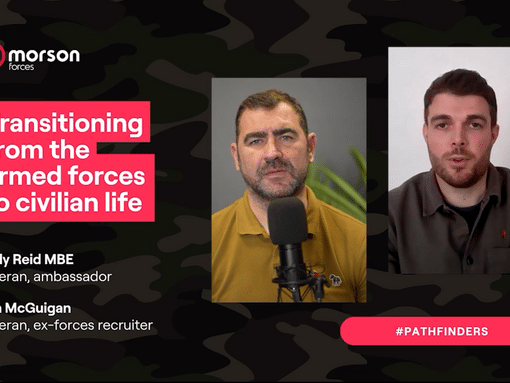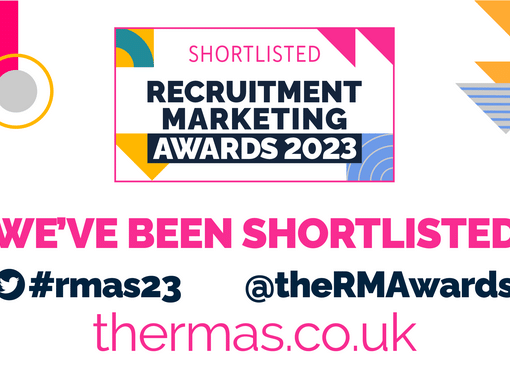
2025: A CEO’s vision for leading through complexity
Morson Group CEO Ged Mason reflects on 2024, what leadership means in this complex business landscape and ahead to 2025 in the business and recruitment world, discussing AI, company culture, ESG and building organisational resilience.

Over the past few years, businesses across the globe have been subjected to some tough geopolitical periods. Regardless of sector, we have felt the consequences of high interest rates, supply chain disruption, and talent shortages.
Not every shift has been negative; some challenges have prompted innovation or have been a catalyst for positive change. The way we work has evolved, leading to increased flexibility and agility. Meanwhile, technology has evolved at pace, equipping us with tools that save time, and allowing us to focus on the strategic matters that we can’t get to when if we are bogged down in the day-to-day.
As I reflect on what leadership means in this complex business landscape, one thing becomes clear: the role of CEOs is evolving faster than ever before. So, what are the issues we’re likely to be grappling with next year, and how should we prepare to tackle them?
Managing the digital-human balance
One of the questions I’m asked more often than you might think is how we maintain our humanity in an increasingly digital world. As AI and automation reshape our industry, I’ve learned that successful leadership isn’t about choosing between technology and human connection; it’s about harmonising both. Technology should enhance, not replace, human judgement.
Many companies have considered and implemented cutting-edge AI platforms, to further strengthen capabilities. This enables them to process complex data more efficiently, helping in recruitment to find the right candidates more quickly and with greater precision. By streamlining these processes, recruiters can focus on building meaningful relationships with both candidates and clients, bringing a personalised and insightful approach to every interaction. The key is to use digital transformation as a catalyst for meaningful human interactions, not as a substitute for them. It’s vital we don’t prioritise AI implementation above workforce planning and development. After all, without question it is people, their talent, perspectives, and experience that are the real drivers of organisational success.
Cultivating resilient company cultures
In times of rapid change, culture isn’t just about office perks or mission statements; it’s your organisation’s immune system. Companies with strong, adaptive cultures consistently navigate disruption more successfully. But here’s the challenge: how do you maintain cultural cohesion when your workforce is increasingly distributed and diverse? One approach is focusing on “cultural architecture”, deliberately designing experiences and systems that reinforce core values while allowing for evolution. This involves creating spaces (both physical and virtual) where innovation flourishes, all while keeping your fundamental principles intact.
Addressing the ESG imperative
Environmental, Social, and Governance (ESG) considerations are no longer optional; they’re essential. And, as we enter the New Year, they will continue to creep up the priority list, not just because governments and regulators are planning to ramp up disclosure requirements, but also because stakeholders value them (employees and customers, as well as investors). For all businesses, it will be increasingly important to collect meaningful data on the effect of ESG initiatives. At Morson, we have used our vision and values to guide our ESG strategy, aligning our efforts with who we are and what we stand for. As a result, our partnerships, including those with institutions such as universities, underscore our commitment to becoming a leader in STEM talent while delivering tangible ESG benefits.
Building organisational resilience
Recent global events have taught us that resilience isn’t just about having strong balance sheets; it’s also about building adaptable organisations that can pivot quickly while maintaining stability. This requires:
- Distributed decision-making frameworks that empower teams.
- Robust scenario planning capabilities.
- Investment in continuous learning and skill development.
- Strong stakeholder relationships across the ecosystem.
At Morson, we’ve observed how economic conditions influence hiring trends and market dynamics. By staying close to our markets and listening to our clients, we’ve maintained the ability to adapt to these shifts. For example, we’ve pivoted to meet the growing demand for contingent talent, particularly within technical sectors.
This agility ensures that our services continue to meet and exceed the changing needs of the organisations we support. Thanks to a focus on resilience and adaptability, we’re helping businesses navigate the challenges of today while building for the opportunities of tomorrow.
The path forward
As we look to 2025 and beyond, I believe successful CEOs will be those who can orchestrate these various elements - digital transformation, cultural cohesion, sustainability and resilience - into a harmonious whole. This requires a new kind of leadership, one that’s less about command and control and more about enabling and empowering.
In my experience, the key lies in maintaining a clear vision while staying flexible about how to achieve it. It’s about being confident enough to set a direction, but humble enough to adapt when circumstances change. For those leading organisations through these complex times, my advice is simple: focus on building systems that can evolve, cultures that can adapt, and teams that can innovate.
The future belongs not to the strongest or the most efficient, but to those who can best manage complexity while staying true to their core purpose.
Morson has a suite of services that are tailored towards helping businesses through transformational change. Find out more here
















